Students in Informatics: Business and Artificial Intelligence (INFN65) at Lund University have had a unique opportunity to go beyond theory. Through a KNIME Student Challenge co-organized with Senior Lecturer Blerim Emruli, learners worked hands-on with real-world data, applying artificial intelligence techniques to address the question: "How NOT to lose a customer in 10 days?"
The challenge became a central component of the course, blending instruction with practical, low-code application of AI. Using the KNIME Analytics Platform, teams worked hands-on to develop a churn prediction model, tackling the full data science lifecycle from exploratory data analysis to predictive modeling.
Over the course of the semester, student teams (up to three members each) were tasked with:
- Exploring and understanding customer churn data
- Handling the challenges of dirty and imbalanced training data
- Building and evaluating predictive models
- Providing constructive peer feedback before final submission
Benefits of the challenge format at Lund
Thanks to Blerim Emruli’s course design and the students’ dedication, the challenge fostered not just technical proficiency but also collaborative learning. And that’s not all. The challenge format at Lund University brought additional benefits, including:
- Realistic problem-solving: Students worked with messy, imbalanced customer churn data, requiring them to clean, model, and interpret data under realistic conditions.
- Curriculum-integrated: The challenge could be embedded directly into the coursework, aligning technical instruction with project-based assessment.
- Peer feedback loop: Before final submission, students provided and received constructive feedback—strengthening both collaboration and critical thinking.
- Scalable structure: Teams of up to three students tackled the same dataset, allowing for diverse approaches without requiring intensive one-on-one supervision.
- Motivation through recognition: A competitive element encouraged students to push for quality, but the focus remained on learning and experimentation.
Celebrating student achievement
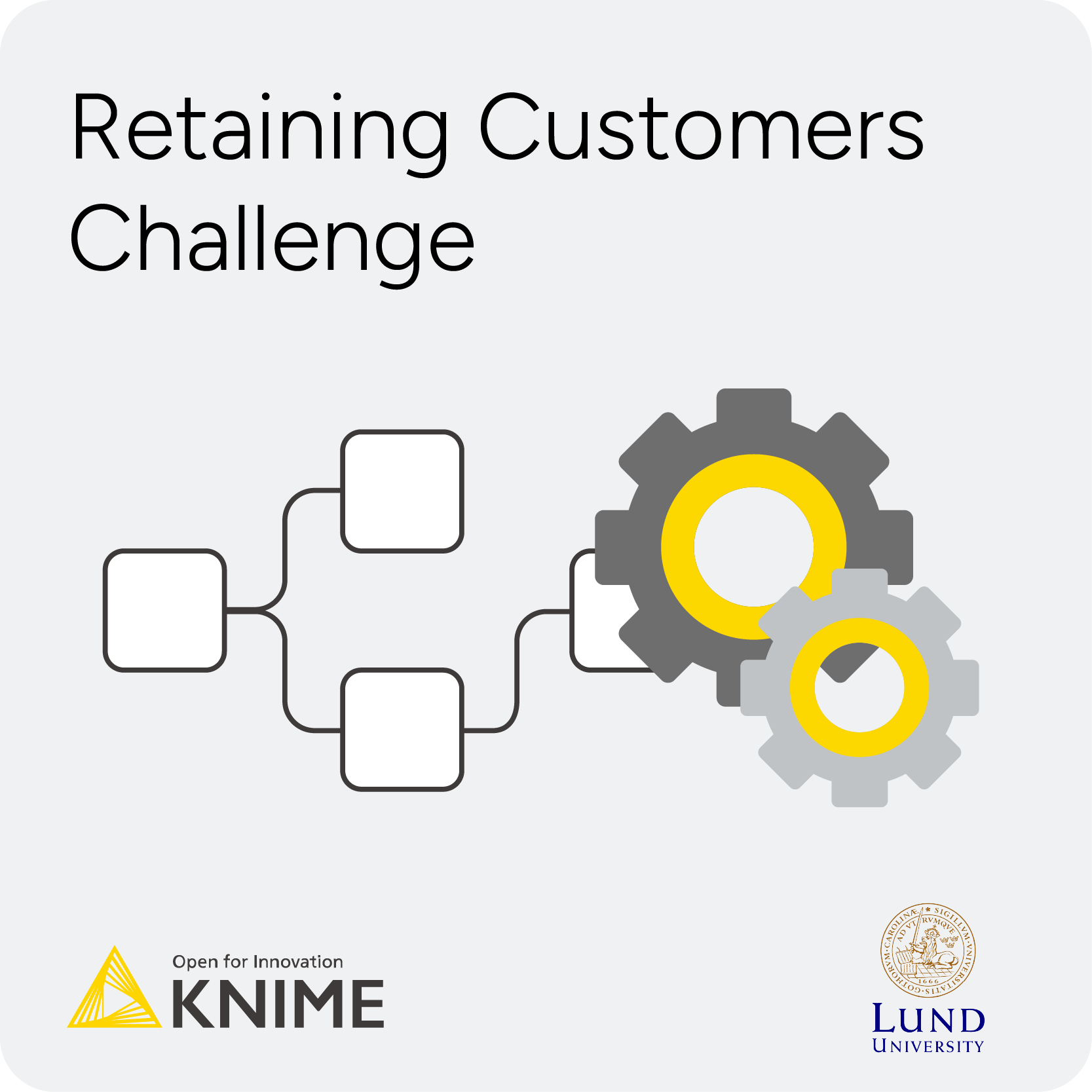
We are excited to announce the winners of the KNIME Student Challenge, co-organized with Blerim Emruli, Senior Lecturer in the Department of Informatics at Lund University.
Meet the Winning Teams
The quality of submissions was outstanding, showing that early-career data workers can deliver impressive results when equipped with the right tools and motivation.
1st Place:
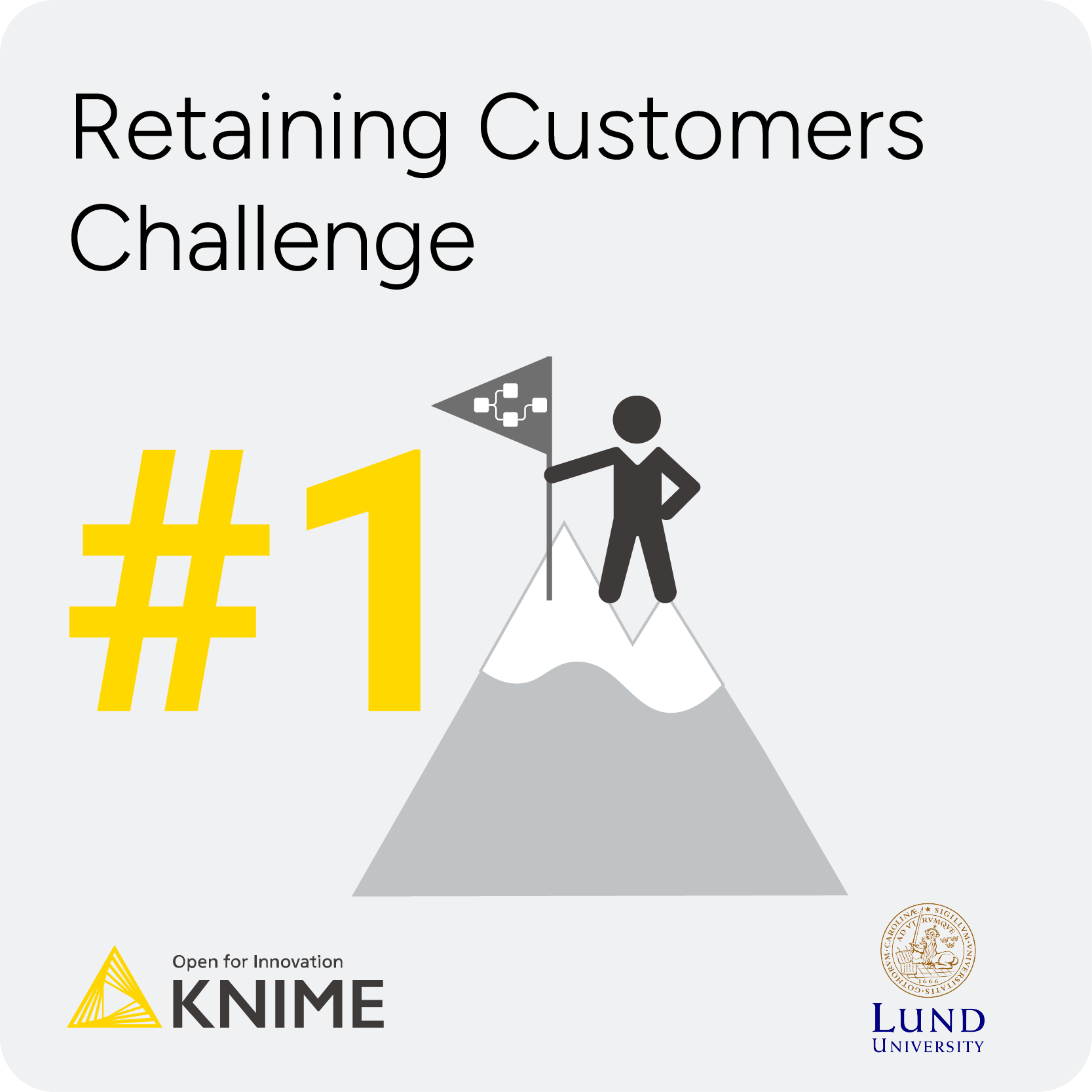
The team developed a robust solution that skillfully handled imbalances (only little data points for churning customers) in the training data, improving their model reliability.
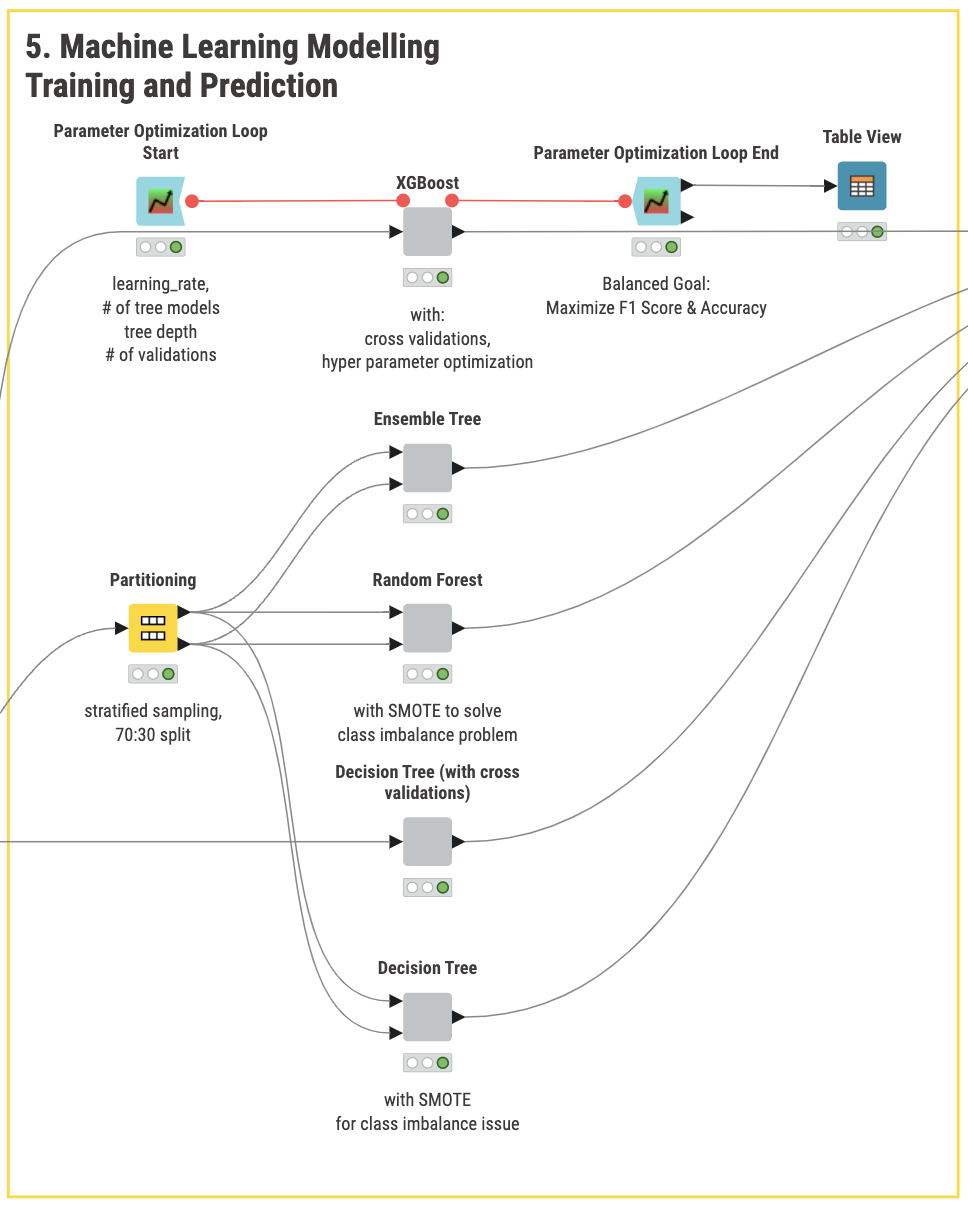
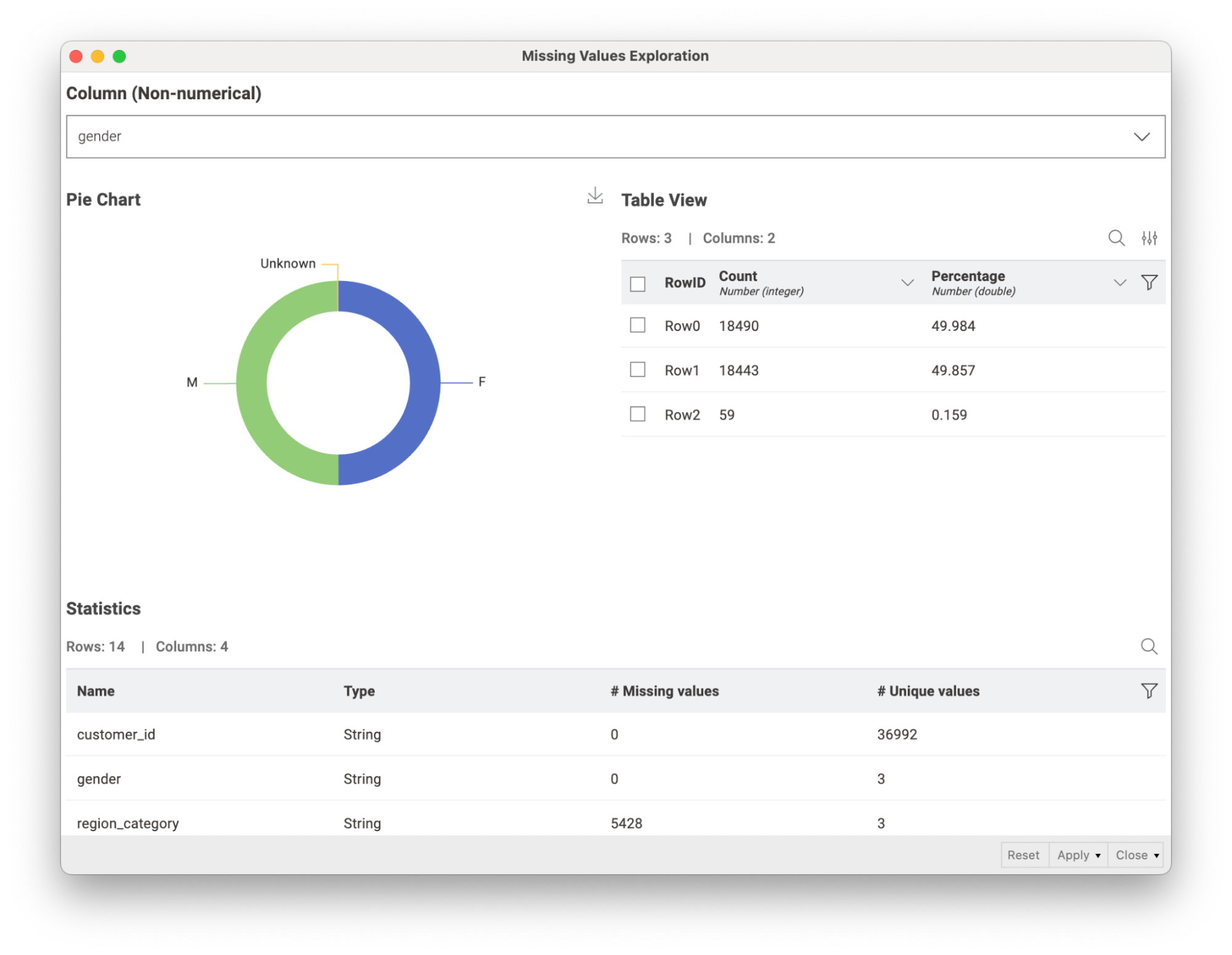
They designed stunning and highly functional dashboards to explore missing values, data distributions, and outliers which enhances data transparency and interpretability. Their thoughtful feature engineering efforts led to notable improvements in model performances which they compared using a custom-built component.
2nd Place:
Tea Benic, James Daniel Raymond-Paul, Lovisa Wendel
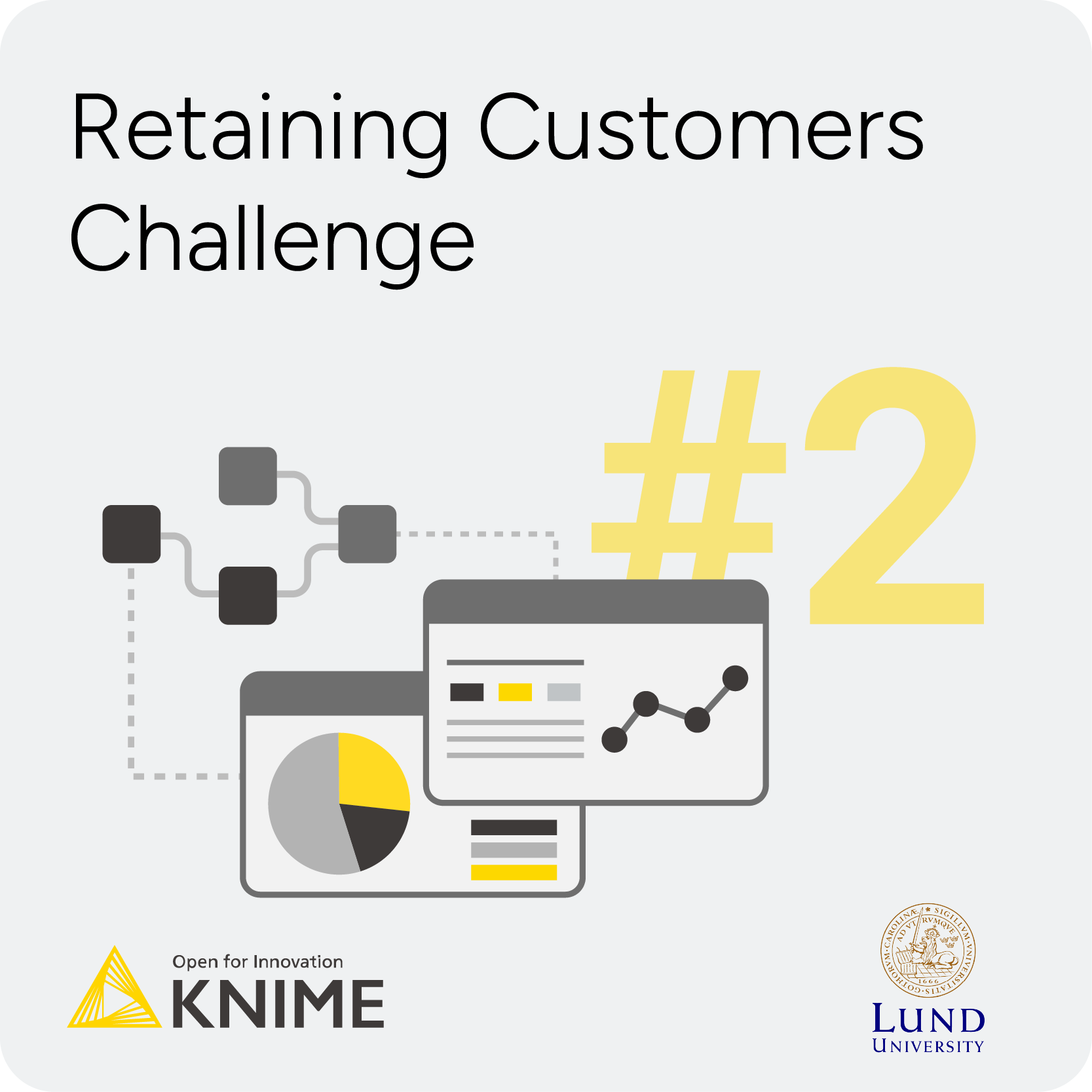
The team placed an emphasis on exhaustively comparing various variations of preprocessing and engineering (e.g. binning of continuous variables for improved performance) of the training data to optimize their model output.

Using 10-fold cross validation, they made sure that the trained models are insensitive to the selection of training data from the input data set.
3rd Place:
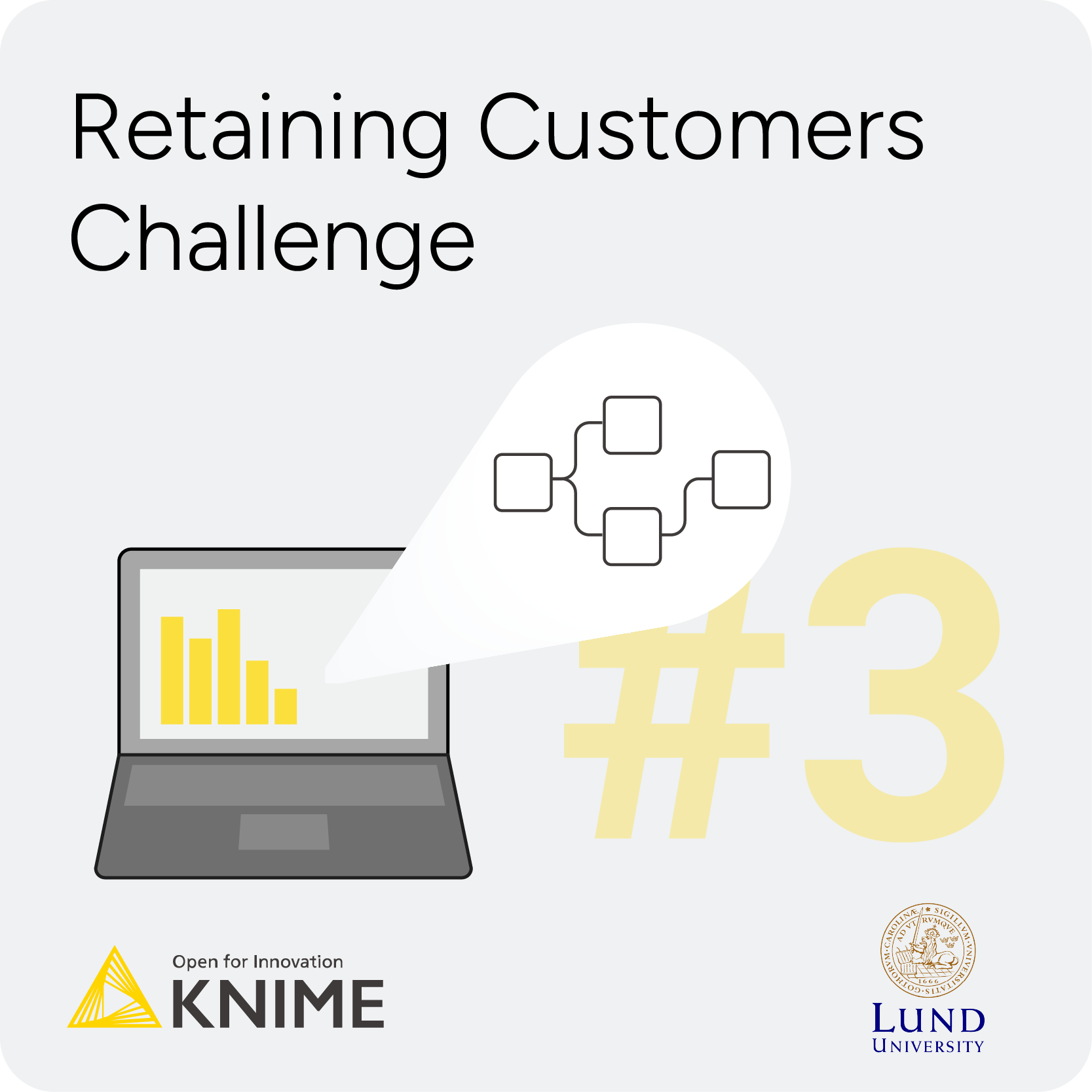
After extensive data cleaning and transformation, the models trained by this team have been heavily optimized for their hyperparameters.
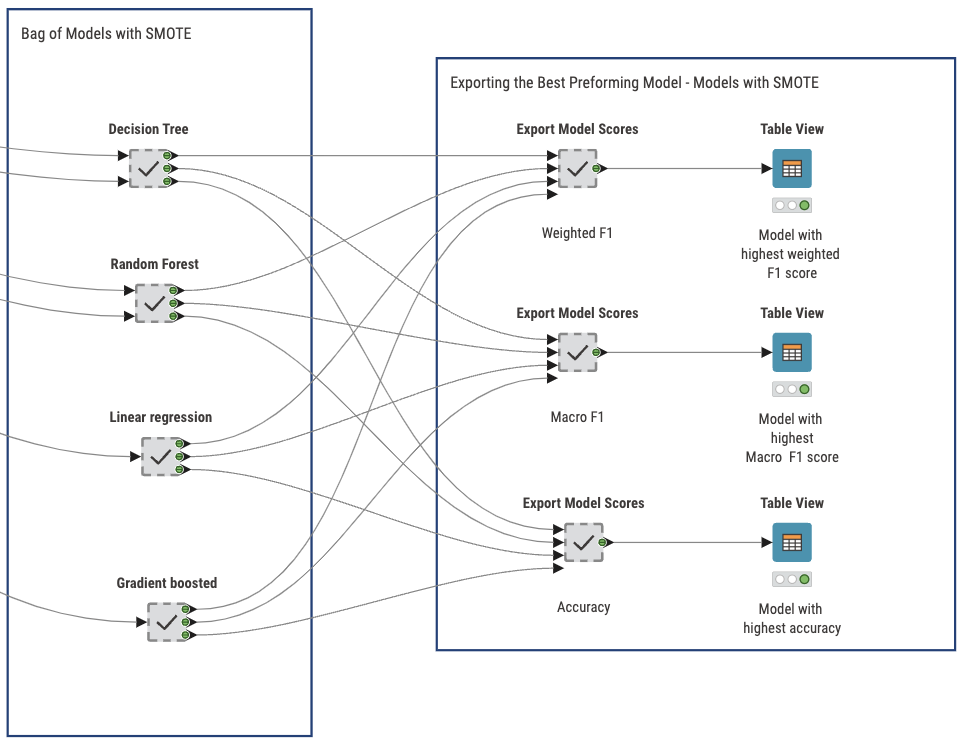
This has yielded optimal results evaluating various key metrics, such as precision and recall – which are important to consider when working with unbalanced data instead of relying solely on accuracy.
Takeaways for educators
This student challenge demonstrated the effectiveness of combining low-code tools like KNIME with real-world datasets and structured team projects. The result is deeper learning, high-quality student output, and genuine enthusiasm in the classroom.
For instructors interested in adopting a similar approach, KNIME’s Educators Alliance provides resources, support, and co-hosting opportunities to help bring these types of challenges into your own curriculum.
Looking ahead
To all the students who participated: your work exceeded expectations, and we’re excited to see where your data science journey takes you next.
We hope to see you active in the KNIME Community Forum, sharing your ideas, workflows, and insights with a global audience.
And finally, thank you to Blerim Emruli for co-hosting this challenge with us and for inspiring the next generation of AI professionals.
If you're interested in partnering with KNIME for a future challenge — or want to explore how KNIME fits into your teaching—get in touch via educators@knime.com.
